Filter by
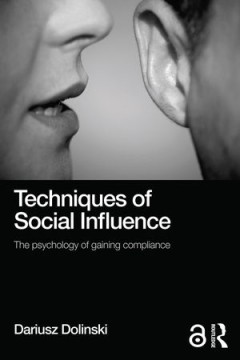
Techniques of Social Influence : The psychology of gaining compliance
Every day we are asked to fulfil others’ requests, and we make regular requests of others too, seeking compliance with our desires, commands and suggestions. This accessible text provides a uniquely in-depth overview of the different social influence techniques people use in order to improve the chances of their requests being fulfilled. It both describes each of the techniques in question an…
- Edition
- -
- ISBN/ISSN
- 9781317599647
- Collation
- -
- Series Title
- -
- Call Number
- 650
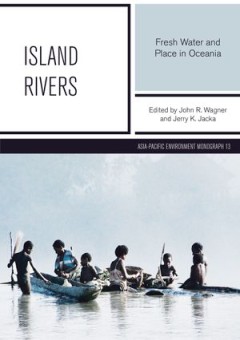
Island Rivers: Fresh Water and Place in Oceania
Anthropologists have written a great deal about the coastal adaptations and seafaring traditions of Pacific Islanders, but have had much less to say about the significance of rivers for Pacific island culture, livelihood and identity. The authors of this collection seek to fill that gap in the ethnographic record by drawing attention to the deep historical attachments of island communities to r…
- Edition
- -
- ISBN/ISSN
- -
- Collation
- -
- Series Title
- -
- Call Number
- 301 ISL i
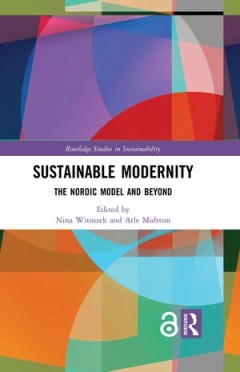
Sustainable Modernity : The Nordic Model and Beyond
The Open Access version of this book, available at https://www.taylorfrancis.com/books/e/9781351765633, has been made available under a Creative Commons Attribution-Non Commercial-No Derivatives 4.0 license. In the 21st century, Norway, Denmark and Sweden remain the icons of fair societies, with high economic productivity and quality of life. But they are also an enigma in a cultural-evolutiona…
- Edition
- -
- ISBN/ISSN
- 9781351765633
- Collation
- -
- Series Title
- -
- Call Number
- 650
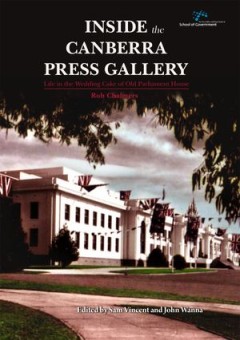
Inside the Canberra Press Gallery: Life in the Wedding Cake of Old Parliament…
Before television, radio, and later the internet came to dominate the coverage of Australian politics, the Canberra Press Gallery existed in a world far removed from today’s 24-hour news cycle, spin doctors and carefully scripted sound bites. This historical memoir of a career reporting from The Wedding Cake of Old Parliament House offers a rare insider’s perspective on both how the gallery…
- Edition
- -
- ISBN/ISSN
- 9781921862373
- Collation
- -
- Series Title
- -
- Call Number
- 320 CHA i

Inside Austronesian Houses: Perspectives on domestic designs for living
The eight papers in this volume examine the spatial organization of a variety of Austronesian houses and relate the domestic design of these houses to the social and ritual practices of the specific groups who reside within them. The houses considered in this volume range from longhouses in Borneo to the meeting-houses of the Maori of New Zealand and from the magnificent houses of the Minangkab…
- Edition
- -
- ISBN/ISSN
- 9781920942847
- Collation
- -
- Series Title
- -
- Call Number
- 301 FOX i
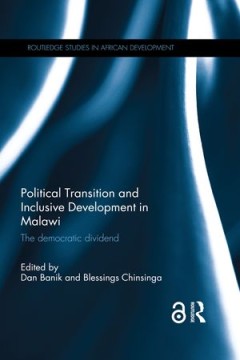
Political Transition and Inclusive Development in Malawi The democratic divi…
Malawi is among the few countries in sub-Saharan Africa that has witnessed significant improvements in relation to meeting the Millennium Development Goal (MDG) targets. It exhibits some of the main challenges facing African democracies while they attempt to consolidate the benefits of democratisation.Political Transition and Inclusive Development in Malawi critically analyses opportunities and…
- Edition
- -
- ISBN/ISSN
- 9781317407546
- Collation
- -
- Series Title
- -
- Call Number
- 650
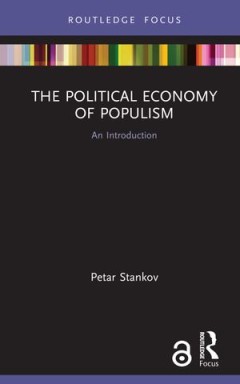
The Political Economy of Populism : An Introduction
The Political Economy of Populism explores the interplay between identity, the economy and inequality to explain the dynamics of populist votes since the beginning of the 20th century.The book discusses the political and economic implications of populist governance using data on populist incumbencies and linking it to historical data on the macro economy and democracy. Chapters draw from the mo…
- Edition
- -
- ISBN/ISSN
- 9781000200713
- Collation
- -
- Series Title
- -
- Call Number
- 650
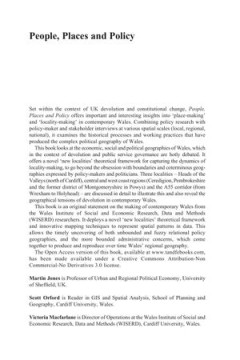
People, Places and Policy
The Open Access version of this book, available at www.tandfebooks.com, has been made available under a Creative Commons Attribution-Non Commercial-No Derivatives 3.0 license. Set within the context of UK devolution and constitutional change, People, Places and Policy offers important and interesting insights into ‘place-making’ and ‘locality-making’ in contemporary Wales. Combining pol…
- Edition
- -
- ISBN/ISSN
- 9781315683904
- Collation
- -
- Series Title
- -
- Call Number
- 650
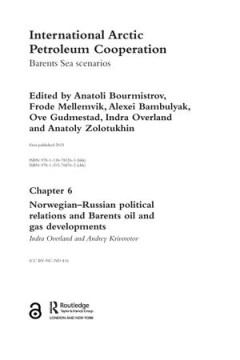
Norwegian–Russian political relations and Barents oil and gas developments
The political relationship between Norway and Russia will influence the development of Barents Sea oil and gas. The state plays a decisive role in both the Norwegian and Russian parts of the sea. It does so as a regulator, through taxation, and through the national oil and gas companies, Gazprom, Rosneft, and Statoil. Thus, if the two states have a good relationship characterized by mutual trus…
- Edition
- -
- ISBN/ISSN
- 9781138783263
- Collation
- -
- Series Title
- -
- Call Number
- 650
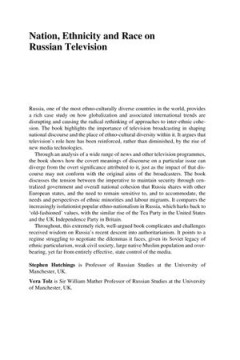
Nation, Ethnicity and Race on Russian Television
Russia, one of the most ethno-culturally diverse countries in the world, provides a rich case study on how globalization and associated international trends are disrupting and causing the radical rethinking of approaches to inter-ethnic cohesion. The book highlights the importance of television broadcasting in shaping national discourse and the place of ethno-cultural diversity within it. It ar…
- Edition
- -
- ISBN/ISSN
- 9781138853287
- Collation
- -
- Series Title
- -
- Call Number
- 650
 Computer Science, Information & General Works
Computer Science, Information & General Works  Philosophy & Psychology
Philosophy & Psychology  Religion
Religion  Social Sciences
Social Sciences  Language
Language  Pure Science
Pure Science  Applied Sciences
Applied Sciences  Art & Recreation
Art & Recreation  Literature
Literature  History & Geography
History & Geography